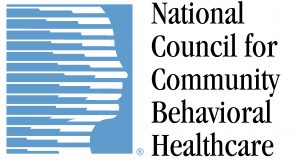
Addiction to various dangerous substances often develops, at least in part, due to encouragement from different social groups or influences. These pressures may cause some individuals to start a habit they might otherwise have avoided. They may also reinforce substance abuse as a harmless or even desirable practice.
The more you understand the outside pressures that can push you into addiction or keep you stuck in a pattern of addictive behavior, the more easily you can recognize and fight back against those triggers and enablers. Consider whether any of the following four influences threaten your health and quality of life.
1. School Social Pressures
Teenagers and young adults naturally feel a strong urge to be accepted in social circles, while at the same time they may struggle with shyness, self-consciousness, and other potential barriers to feeling like a member of the group. Drugs such as alcohol can serve as bonding devices that also break down inhibitions and anesthetize anxiety.
Unfortunately, these social lubricants can often sabotage students’ efforts to fit in. For instance, the impaired judgment associated with heavy drinking can lead to fights and toxic relationships, while the relaxation produced by marijuana may give way to bouts of paranoia, increased anxiety, and a tendency to get lost in one’s head.
2. Workplace Pressures
Individuals who experience social pressures in school may breathe a sigh of relief when they move on to the working world, only to discover a whole new set of pressures awaiting them. These stresses may stem from the demands of the job itself, the transition to a new position, or ongoing chronic worries about job performance.
The nature of your workplace stress may help determine the substance you end up abusing. For instance, if your job calls for a superhuman degree of alertness and vigilance, you may feel compelled to abuse stimulants. If you feel unnaturally wound up after a hard day’s work, you may feel an urge to use sedatives or alcohol.
These practices can do more harm than good to your career in the long run. Substance abuse can lead to absenteeism, lateness, hangovers, or sleeplessness, all of which can make you irritable around your coworkers and prone to making mistakes in your work. Fortunately, many employers can help accommodate an employee’s need to undergo treatment.
3. Mass Media Influences
Television, films, literature, and social media can all nudge people into either trying addictive drugs for the first time or making them feel better about their use of such drugs. You may have seen many TV shows or read countless stories that glamorized substance abuse as the recreational preference of the rich and famous.
At the same time, the media can promote false assumptions about addiction, portraying it as a sign of moral weakness instead of an unfortunate but reversible situation that can trouble anyone. These falsehoods may make people who struggle with addiction hesitant to admit their problem and seek help.
4. Wine-Mom Culture
One fairly recent social pressure related to addictive behavior involves the phenomenon known as “wine-mom culture.” Beginning in the 2010s, various social media platforms have promoted alcohol, specifically wine, as an essential survival tool and social bonding link for weary, stressed-out, overwhelmed mothers.
Although wine-mom culture paints heavy wine consumption as a humorous coping mechanism, this habit can lead to serious issues. Excessive alcohol consumption poses even higher health risks for women than for men in terms of liver damage, heart disease, cognitive problems, and even is a major contributing factor towards sexual violence.
If you need to break free of both an addictive substance and the social strings that help keep you tied to that substance, contact Clearview Recovery Center. Our addiction recovery experts can help you overcome your addiction and develop new resistance to those potentially harmful cultural influences.





